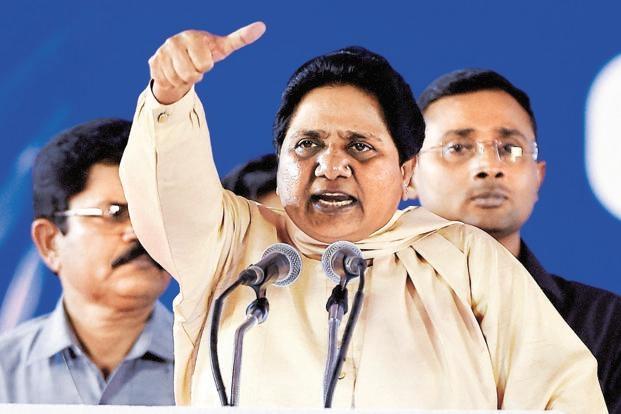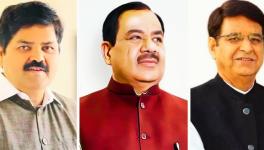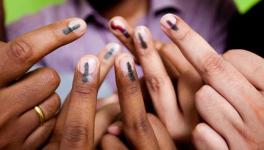Why Congress Needs BSP to Win Madhya Pradesh
Even in the landslide victory of 2013, the difference in vote share between BJP and Congress was a little over 8%. BSP's 6-7% votes can come in handy.

The Congress has received a major blow in Madhya Pradesh with the Bahujan Samaj Party (BSP) last week announcing 22 candidates for the upcoming Assembly elections due in November this year. BSP supremo Mayawati also announced a pre-poll arrangement with Ajit Jogi's party in neighbouring Chhattisgarh, leaving Congress in the lurch.
The BSP made these announcements at a time came when all top Congress leaders from the state, including Kamal Nath, Digvijaya Singh, Jyotiraditya Scindia, Ajay Singh, Suresh Pachauri, Vivek Tankha and Kantilal Bhuria were in an election committee and screening committee meeting in New Delhi.
This is a setback for the Congress, which, over the past four months, has been asserting that a pre-poll alliance with BSP was on the cards. The poll alliance would be primarily for the 2019 Lok Sabha elections, but the initial seat-sharing would start from November-December Assembly elections in four states, it had said.
In almost every press conference, Pradesh Congress Committee (PCC) Chief Kamal Nath has been claiming, “Talks are on with BSP, Samjawadi Party and the Gondwana Gantantra Party. The situation will be clear very soon. Announcements of 22 BSP seats would not change much.”
However, BSP National general secretary in-charge of Madhya Pradesh, Ramachal Rajbhuar said Mayawati had decided the party will field its candidates in all 230 Assembly seats in Madhya Pradesh.
Why is Congress so keen on an alliance?
On the face of it, it may appear strange that Congress, the main opposition party in Madhya Pradesh, should be so keen to stitch an alliance with BSP, whose candidates lost their deposits in 194 of 227 seats that the party contested in 2013.
The big question is why the Congress is so keen on an alliance with a party that had a vote share of 6.27% in MP in 2013 and won only four seats? And why is still so optimstic despite Mayawati's announcement of 22 candidates?
The optimism is based on a strong feeling among state Congress leaders that BSP will come around and an alliance will be struck eventually. “We would still like all like-minded parties to come together against BJP but all the parties have their own strategies and compulsions. We can’t force them to have truck with Congress. In any case, we are very strong in MP and alliance or no alliance we are winning the Assembly election hands down,” said Abhay Dubey, vice-chairman of state Congress media committee.
BSP: A small but potent force
Political observer Girja Shankar, who has written a number of books on MP Assembly elections, says that BSP in MP is different from what it is in Uttar Pradesh. “It’s not a Dalit party in MP but has more support among OBC voters. There have had only two BSP MPs from MP. Both are OBCs. One of them, Sukhlal Kushwah, defeated Arjun Singh. It may be a marginal party with 6% vote share, but look at their vote percentage in Vindhya, where they polled 19% votes and Chambal, where they bagged 17%. This is what makes BSP a potent political force,” he said.
So, what does the math say? BSP has a committed vote bank, which neither goes to Congress nor BJP. An alliance with Congress will, however, reorient these votes towards Congress. It’s significant that even in the landslide victory of 2013, the difference in vote share between BJP and Congress was a little over 8%. BSP, which has consistently been polling 6-7% votes in Madhya Pradesh, could come in handy to neutralise that lead,” said a senior Congress leader.
He pointed out that the last three Assembly by-elections that Congress won – Chitrakoot, Mungaoli and Kolaras – were in pockets of BSP influence. “BSP did not contest theses three bypolls, giving our party leadership one more reason to think of an alliance with BSP in this do-or die battle,” he added.
In the 2013 Assembly elections, BSP contested 227 seats and won four, including Dimni, Ambah, Raigaon and Mangawan. It got a total 6.29% of the total votes polled.
BSP Candidates
The candidates declared by BSP last Thursday are for seats mainly from Chambal and Vindhya districts adjoining the Uttar Pradesh border, including two from Morena, one from Bhind, one from Datia, one from Shivpuri, one in Ashoknagar, one in Chhattarpur, two in Damoh, three in Satna, four in Rewa, one in Singrauli, one in Sindhi, one in Shahdol and one in Umaria. Candidates for one seat in Katni and another in Jabalpur have also been announced.
Two of the 22 candidates are sitting MLAs – Usha Choudhary from Raigaon in Satna district and Shiela Tyagi from Mangawan in Rewa. Two other Ram Lakhan Singh Patel from Rampur Baghelan and Rambarib Kol from Simaur are the party’s former MLAs.
BSP state president Pradeep Ahirwar, however, continued to take a tough stance on the question of alliance with Congress. “Behenji (BSP Chief Mayawati) has announced candidates in 22 seats in the first phase. We will contenst all the setas on our own and form a BSP government in the state. There is no question of an alliance with Congress.” He said.
Meanwhile, the ruling Bharatiya Janata Party (BJP) is still observing the situation. State BJP vice-president Vijesh Lunawat said, “For 15 years, the BJP government has been working for development especially of the deprived class. In future, the BJP under Chief Minister Shivraj Singh Chouhan will work for a ‘Samriddha' (prosperous) Madhya Pradesh. In 2003, 2008 and 2013 the people of the state were with the BJP. It makes no difference for us weather the BSP enters or does not enter an alliance with the Congress. We are confident that people are with the BJP."
Get the latest reports & analysis with people's perspective on Protests, movements & deep analytical videos, discussions of the current affairs in your Telegram app. Subscribe to NewsClick's Telegram channel & get Real-Time updates on stories, as they get published on our website.























